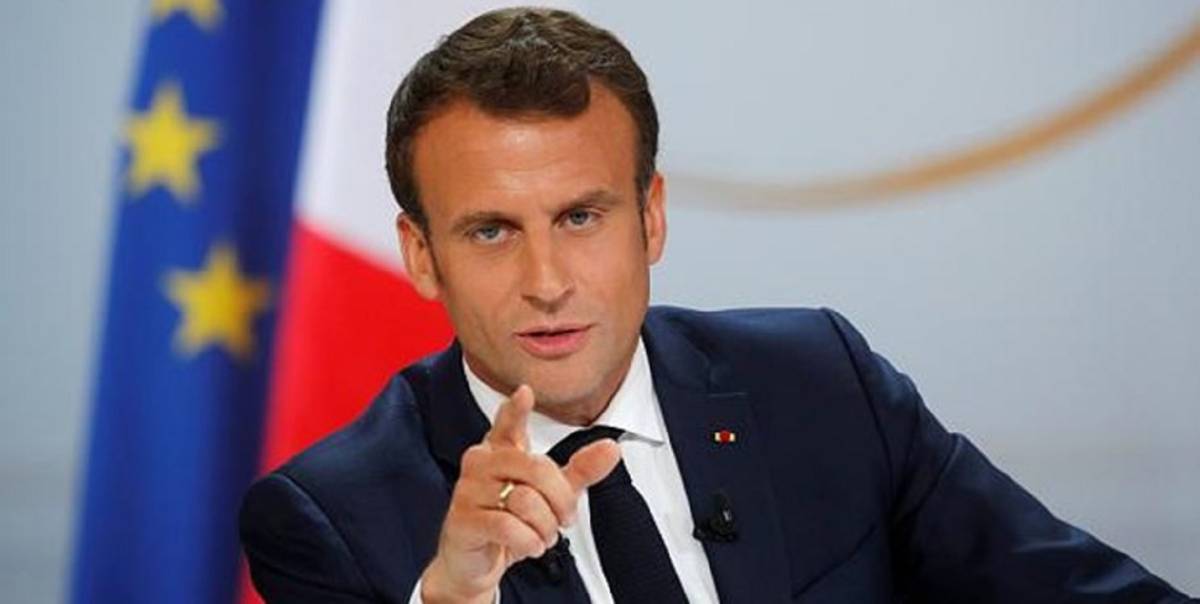2561 Views
The Domino Effect of French Turmoil: From Paris Streets to NATO’s Frontlines
France has long sought to present itself as a central player in European and global politics; a country that has consistently tried to balance its traditional independence with active participation in NATO, the European Union, and various international coalitions. However, the current domestic crisis in Paris has significantly undermined the credibility of France’s foreign policy. Emmanuel Macron, a president who once portrayed himself as a reformer and the architect of Europe’s strategic future, is now grappling with severe internal challenges that have weakened his authority both in the eyes of rivals and partners. From the erosion of presidential authority in foreign engagements to mounting fiscal and economic pressures at home, France’s global role has been directly affected. The gap between domestic politics and France’s foreign commitments has never been this glaring.
Traditionally, French foreign policy has been the “reserved domain” of the president—a prerogative granting him broad powers over defense, diplomacy, and security. This Gaullist model, dating back to Charles de Gaulle, allowed leaders from de Gaulle to François Mitterrand to steer foreign affairs with remarkable independence. Today, however, Macron’s position is challenged by a deep domestic crisis: mass protests, parliamentary opposition, and even the threat of a no-confidence vote against his prime minister.
These political upheavals are eroding the president’s traditional authority. Legally, foreign policy remains in Macron’s hands, but declining domestic legitimacy prevents him from speaking abroad with the same force. Allies and adversaries alike are questioning whether he can fulfill international commitments while his position at home grows increasingly unstable.
One possible outcome is the continuation of the status quo: Macron clings to office but must rely on a centrist prime minister to manage domestic affairs. While this might preserve his presidency, it would weaken his grip on foreign policy. In such a scenario, leaders in Washington, Moscow, and Kyiv would view him as a diminished figure, less capable of inspiring trust or exerting influence.
This has special significance in the Ukraine file. France has long positioned itself as a balancing power—sometimes a staunch supporter of NATO, sometimes an advocate of dialogue with Russia. But a weakened Macron can no longer play the role of mediator between opposing camps. His relevance in negotiations with Biden, Putin, or Zelensky has visibly declined, and France’s weight in shaping outcomes has faded. Over time, this diminishes France’s long-term influence in the international system.
Another scenario is a fragile cohabitation between Macron and the opposition in the National Assembly, particularly with center-right parties that are ideologically closer to him. Such an arrangement would generate mixed signals in foreign policy. On Ukraine, Macron’s government insists on full support for Kyiv, but many opponents demand a more cautious—or even skeptical—approach to continued aid. On Gaza, contradictions would be even sharper, preventing France from adopting a coherent position.
The result is an ambiguous, multi-voiced foreign policy. Allies would be uncertain of Paris’s priorities, while rivals would exploit the divisions. France’s credibility as a unified diplomatic actor would collapse, and its historic claim to strategic leadership in Europe would come under question.
The most extreme scenario would be Macron’s resignation—an outcome that could result from political deadlock or failure to regain control through a referendum or snap elections. This would plunge France into a political vacuum, paralyzing foreign policy for at least a month. During this transition, France would be sidelined from major diplomatic processes: in NATO, the G7, and negotiations on Ukraine and the Middle East. Its role in the Ukraine coalition would be drastically weakened, forcing Germany, the UK, and the US to fill the void. In other arenas where France has been influential—such as West Africa or the Indo-Pacific—its absence would be palpable, reshaping allied perceptions of Paris’s future role.
Beyond political scenarios, France also faces severe economic constraints. Its budget deficit—projected at 5.8% of GDP in 2024, far above the EU’s 3% threshold—underscores the depth of its financial troubles. These fiscal pressures directly impact foreign policy, limiting resources for defense modernization, foreign aid, and sustained military operations.
As a result, Paris will increasingly have to rely on partners, especially Germany and the UK, to shoulder collective responsibilities. For European allies, this creates an added burden: at a time when the continent faces unprecedented security threats, one of its central powers is consumed by domestic troubles and economic limitations, leaving Europe weaker as a whole.
In sum, France’s domestic crisis is a convergence of institutional, political, and economic failures that collectively undermine its foreign policy. Macron’s traditional authority, though constitutionally enshrined in the Fifth Republic, is no longer sufficient to maintain France’s influence in a changing world. Persistent instability—fueled by deep budget deficits and eroding public trust—prevents the government from addressing core internal issues, resulting in lost credibility abroad.
This internal turmoil poses a serious threat to the entire European Union, creating potential “contagion effects” that extend well beyond momentary distractions for Macron during a volatile geopolitical moment. It is, in essence, a “domino effect” that other major European leaders must reckon with. Without a stable government and a clear path for resolving fiscal challenges, France risks becoming an ineffectual power, its foreign policy ambitions overshadowed by urgent domestic needs. From European defense to strategic autonomy, France’s capacity for leadership is at risk of steep decline. Ultimately, whether the future holds political stalemate, uneasy cooperation with the far right, or Macron’s resignation, one thing is clear: France’s crisis is no longer just a French problem—it is a critical variable for the stability of Europe and the Western alliance.
By Amin Mahdavi
De Gaulle Steps Down | Research Starters | EBSCO Research
2 Experts react: The French government has collapsed again. What does this mean for France, the EU, and Macron? - Atlantic Council
3 Far-right National Rally ready to govern France, Jordan Bardella says at manifesto launch | France | The Guardian
4 https://www.insee.fr/en/statistiques/8542247

Comment
Post a comment for this article